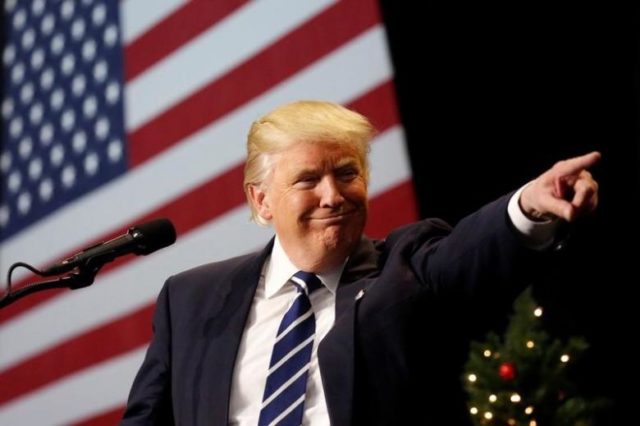
President-elect Donald Trump continues his “Thank You Tour” today with a rally in Orlando. Trump also tweeted out an invite to the people of Mobile, Alabama, to join him at a rally on Saturday. The president-elect has also used twitter to attack opponents and make policy statements. But are those tweets policy? That’s what a team from Reuters looked at. Over at Bloomberg’s “Surveillance” show this morning the discussion looked at Trump’s cabinet choices and the future policy decisions.
‘Is a Tweet policy?’ State Department officials ponder (Reuters Reporting by Arshad Mohammed, additional reporting by Timothy Gardner, Steve Holland and Matt Spetalnick; Editing by Andrew Hay)
When is a tweet just a tweet?
A debate is percolating in the U.S. State Department, where diplomats measure their words with demitasse spoons, on how to handle Donald Trump’s Twitter commentary if he continues to tweet after he becomes U.S. president on Jan. 20.
By tradition, anything the president says is regarded as U.S. policy and can be repeated to foreign officials without fear of contradiction, at least from the White House.
But Trump has questioned bedrock planks of U.S. policy, such as whether Taiwan is part of “one China” or whether Washington would defend NATO allies, causing consternation at home and abroad.
“I have never hesitated to take anything that POTUS said in speeches, press conferences, and other remarks as anything but policy,” a midlevel diplomat who has served on four continents wrote Dec. 7 on an internal State Department discussion board, in reference to the President of the United States (POTUS).
“But what about tweets?” he asked.
“Given the president-elect’s penchant for using (Twitter) in a much more spontaneous context than most other USG officials, how should FSOs regard those statements?” he added, referring to U.S. government (USG) foreign service officers (FSOs).
“In theory, we all should have a firm grasp of what is hyberbole (sic) and what is not, but in practice we should not be so sure. I for one am done making assumptions in this area for at least the next four years,” the diplomat added.
He then appealed to the State Department’s Bureau of Public Affairs to issue an ALDAC, or formal message to “All Diplomatic and Consular Posts,” clarifying matters.
The post, titled “Is a Tweet policy?” on “The Sounding Board,” a forum on the State Department’s intranet, prompted thoughtful, though equally perplexed, comments.
Another official wrote that he was confident President Barack Obama’s comments are to be taken “seriously and literally”, Trump may want his tweets to be taken both “seriously and figuratively,” he wrote.
“Assuming there is a strategy here, it would seem that it would be to create a sense of ambiguity around issues previously thought to be settled for the purpose of leveraging a better deal to advance USG interests,” he added. “Miscommunication may be the very purpose of the President Elect’s tweets.” READ MORE
This morning Harvard Business School Professor Michael Porter examines the makeup of U.S. President-elect Donald Trump’s cabinet as he sees inconsistencies in the team Trump is building. Bloomberg’s Marty Schenker joins the conversation on “Bloomberg Surveillance.”












